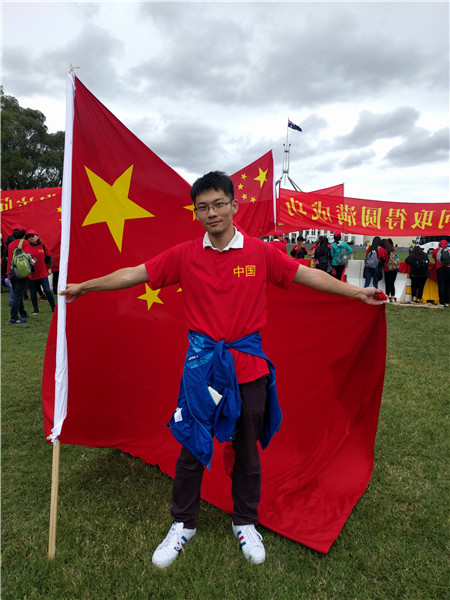Younger generation returning to realize personal dreams


A different perspective
Pan Xiangyue, who studied at the Australian National University before returning to China earlier this year, said: "Our generation is different from our parents'. They lived in a period when our country was poor, and it was their efforts and dedication that helped to create the economic miracle."
Living in a wealthier environment, Pan said young people see things differently from their parents. "We grew up after reform and opening-up," the 25-year-old said. "We witnessed the takeoff of China's economy. The rapid development of our country gave us the confidence to have dreams and realize them."
Simon Mander, senior partner at AMVS Legal, a company that provides advice to people looking to live in Australia, told Xinhua that young Chinese tend to be more reluctant to move than older people.
Echoing Pan's view, he observed that social development is definitely an important factor.
"In the 1990s when I was in Nanjing (capital of Jiangsu province), I think the train ran about five hours into Shanghai. Whereas now you can live in Nanjing and work in Shanghai, and come back in the evening," he said.
In the past, Chinese people used to marvel at the convenience in Western countries, but now some young people would go so far as to say "We have a higher level of technology than Australia," Mander said.
China's connection with the rest of the world has been strengthened in the decades since the start of reform and opening-up, which has facilitated international business.
"China has made it easier for people to work and travel in the country," Mander said.
Speaking about her decision to return, Song said: "My path to fulfilling my dream overlapped with our nation's path to prosperity. This is the best route I could ever take."
Emotional attachment
In addition to greater convenience, both Song and Pan acknowledged that young Chinese are more emotionally attached to their homeland, and it is their dream to see China grow stronger.
This year marks the 70th anniversary of the founding of New China. Countless young people have voiced their love for the country and added the national flag to their social media profile pictures.
Capitalizing on this feeling, My People, My Country, a movie that recalls important moments in China during the past seven decades, has made 2.85 billion yuan ($405 million) on the Chinese mainland.
The film fared well even in Canberra, the Australian capital, a city of barely 400,000 people. During the premiere, the audience members stood as one and sang the film's title song.
Both Song and Pan said the outpouring of patriotism is voluntary, and they are not "brainwashed", as some media reports claim.
"The Western world should not underestimate Chinese people's ability to judge," Song said. "Many young Chinese have received a college education, and an increasing number of them have the chance to travel overseas."
Pan said: "When I was overseas, I found that news reports sometimes didn't reflect our real lives and mentality. For me, the Chinese dream reflects our pride and responsibility as Chinese. We are no longer an impoverished and weak nation that can be bullied, and our next step is to change the bias of other countries."
Qiang Lijing and Zhu Qing contributed to the story.
Xinhua





































